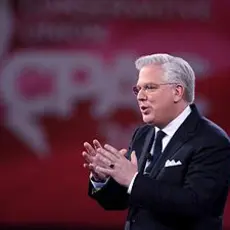In less than two years, the Tea Party movement emerged with an angry shout, became a major player in the national debate over health care reform, toppled incumbent senators and defeated candidates backed by the GOP establishment, and pushed radically right-wing views about the role of government into public debate. And they’re about to see a number of their candidates elected to Congress.
For a while last year, journalists and other political observers weren’t sure whether to take the Tea Party movement seriously as a force in American politics. But Lawrence Rosenthal, head of the Center for Comparative Study of Right-Wing Institutions at the University of California Berkeley, and his colleague Christine Trost decided it was worth a serious look. Last Friday, the Center hosted Fractures, Alliances and Mobilization in the Age of Obama: Emerging Analyses of the Tea Party Movement, the first academic conference on the topic. It was an interdisciplinary event, featuring historians, sociologists, political scientists, political theorists, scholars of race and gender, and journalists, each taking a look at the movement from a different angle. As a senior fellow at PFAW Foundation, I made a presentation on the connections between the Tea Party and the Religious Right at the leadership, activist, ideological, and political levels. In his introductory remarks, Rosenthal emphasized the “emerging” nature of the work being presented. The Tea Party is new to the political scene, and the upcoming elections and their aftermath will tell us a lot more about its impact. It’s impossible to do justice to a day-long conference in a short blog post, so I’ll mention just a few of the presentations that struck me as particularly interesting. If you’re interested in more, you can find the conference agenda here, and Berkeley folks expect video of the presentations to be available online shortly at the Center’s website. A volume of conference papers is planned for next year. A few items from my notes, with apologies to any scholar who feels I’m off-point with any of these hyper-condensed items:- From Rosenthal’s opening remarks, a comparison of the role Fox News has played in the Tea Party’s rise with the role of Berlusconi’s media empire in his rise to political power in Italy.
- From the keynote address by author Rick Perlstein, a reminder that angry reaction to liberal political ascendancy is a regular part of our history, and that the lack of a robust left-wing populism opens the door to the dangers that are particular to right-wing extremism.
- Several scholars reporting that one-or-the-other descriptions of the movement (grassroots or Astroturf?) are usually too simplistic; at this point the movement is a fluid mixture not easily categorized.
- Professor Christopher Parker from the University of Washington presented polling data showing that supporters of the Tea Party movement are more likely to harbor negative attitudes toward Blacks, Latinos, and gay people.
- Professor Martin Cohen from James Madison University presented a fascinating look at another movement that built power within the GOP: he analyzed the effectiveness and impact of the Religious Right’s “first wave” – think Falwell and Moral Majority – and its “second wave” – think Ralph Reed and the Christian Coalition. He suggested that the Tea Party movement currently sounds more like the first wave in the level of public anger and hostility to compromise, and argues that the movement would have a bigger impact if it takes some lessons from the second wave. (Lessons, by the way, that Reed himself is happily imparting through his new Faith and Freedom Coalition)
- Professor Alan Abromowitz from Emory University presented evidence that the increasing partisanship of recent decades set the stage for the kind of no-compromise politics of the Tea Party crowd. Since the 1970s, Republicans have had steadily smaller regard for Democratic presidential candidates, with the biggest fall among the most active.
- Charles Postrel, San Francisco State University historian and award-winning author, challenged the use of the term “populism” in connection with a movement that is drawing inspiration from the likes of the John Birch Society and right-wing author Cleon Skousen, who is being heavily promoted by Glenn Beck.
- Chip Berlet, who analyzes right-wing movements for Political Research Associates, discussed ways that right-wing populists use demonization, scapegoating, and conspiracy theories to justify "apocalyptic aggression."
- Lisa Disch, a University of Michigan professor of political science and women’s studies, gave a fascinating “contrarian” analysis that described the Tea Party and the racial resentments evident in the movement as an outgrowth of the New Deal rather than a rejection of it.
- Devin Burghart, Vice President for the Institute for Research & Education on Human Rights, discussed the group’s recent report, Tea Party Nationalism, and its findings about the infiltration of local Tea Party groups by racist and anti-immigrant activists.





